This post explains the differences between unsalted butter and salted butter and why unsalted butter is best for baking (plus what to do if you only have salted butter on hand).
There are so many reasons to love butter! The most obvious reason: that flavor! Who doesn't love a delicious, buttery pie crust, pound cake, or cookie? And to get that perfect flavor, you'll want to use the right type of butter.
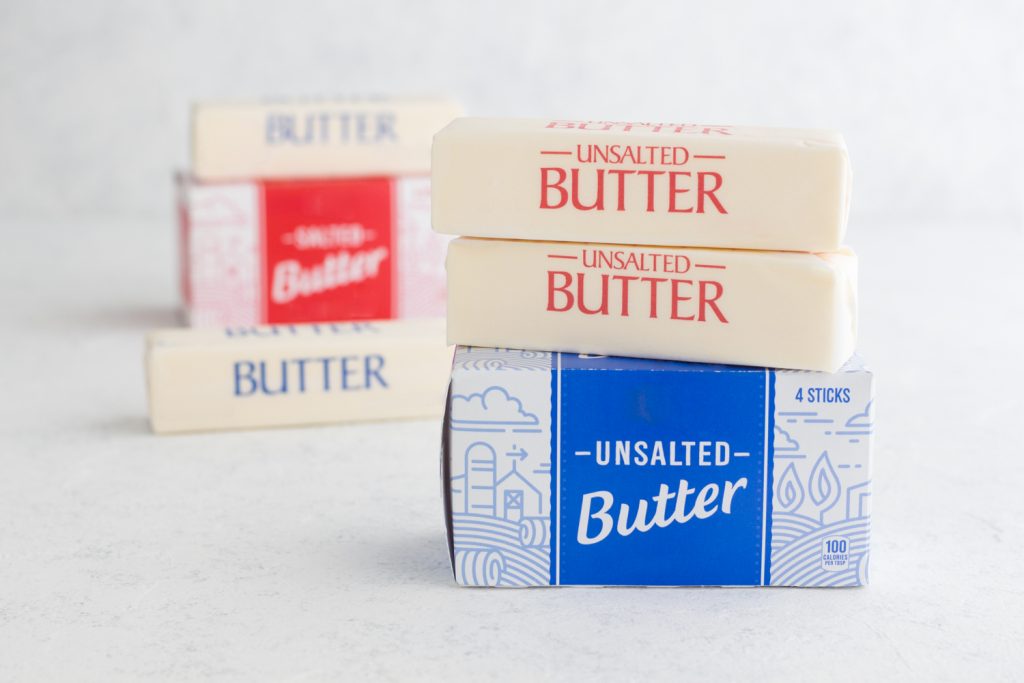
I'm talking about unsalted versus salted butter. Yes, there's a difference! And for baking, unsalted is best for two reasons:
- Control over the amount of salt in your recipe
- The freshness of the butter
Baking with unsalted butter will let you control the amount of salt in your baked goods.
Different brands of salted butter have different salt contents, so you never really know how much extra salt you're adding to your recipe if you use salted butter. Baking with unsalted butter and adding salt to your recipe separately gives you control over the amount of salt so that you can be sure your sweet treats won't taste too salty.
Unsalted butter is typically more fresh than salted butter.
Since salt is a preservative, salted butter has a longer shelf life than unsalted butter. Unsalted butter, with its shorter shelf life, tends to be more fresh than its salted counterpart.
What if I only have salted butter on hand?
If you're baking a recipe that calls for unsalted butter but you only have salted butter on hand, simply decrease the amount of salt you add to the recipe, since the butter will already be adding some salt to your recipe. (For example, if you're baking cookies with salted butter and the recipe calls for ½ tsp. salt, consider cutting the amount of added salt in half.)
So, when would I use salted butter?
This is a matter of preference, but you may like to use salted butter in some of your cooking to enhance the flavors or serve salted butter with bread.
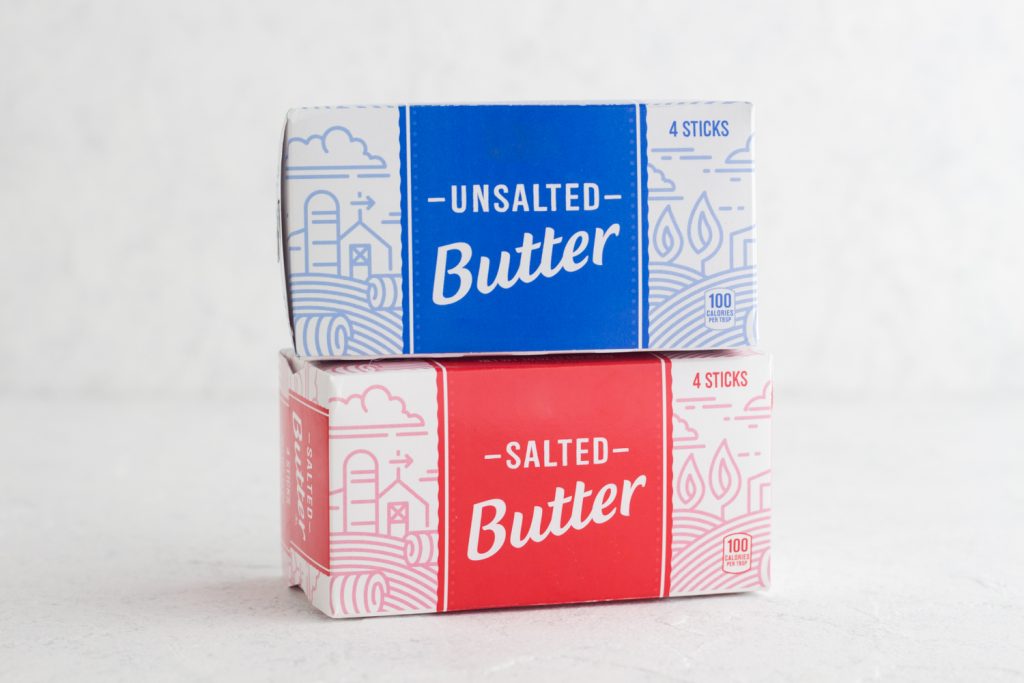
P.S. The temperature of your butter is also super important and can make a big difference in the end result of your baked goods! Read more about the importance of ingredient temperature here.


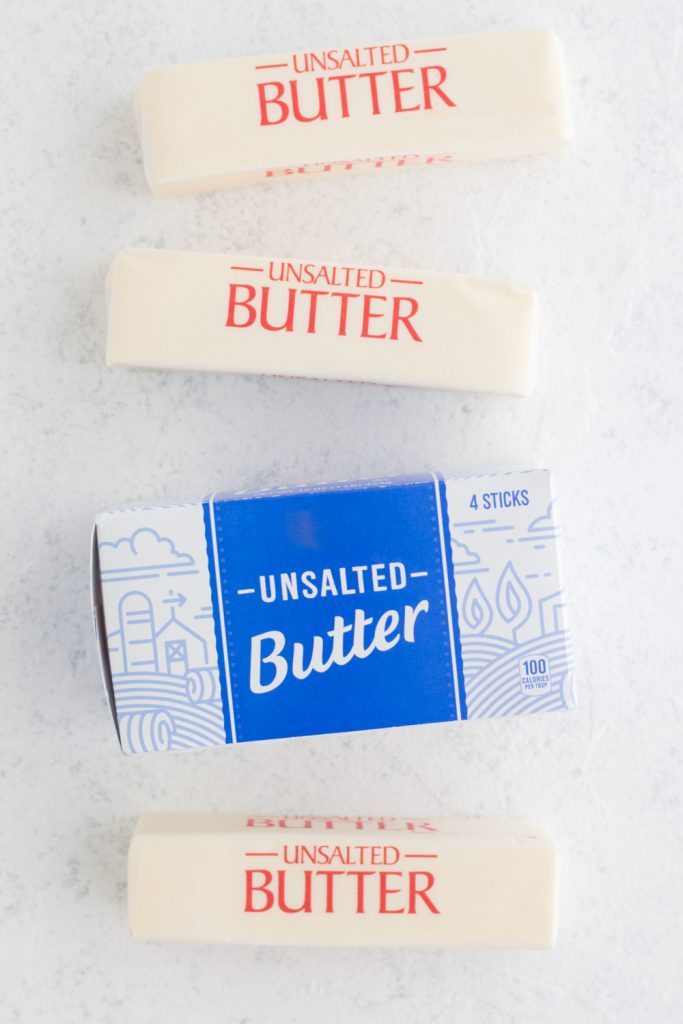
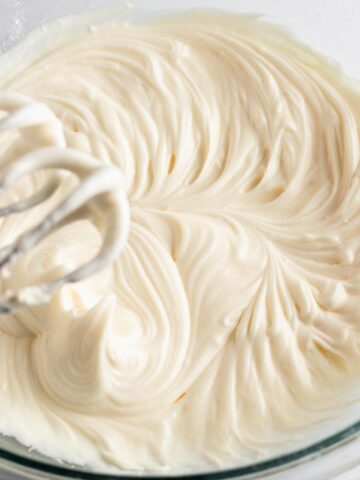
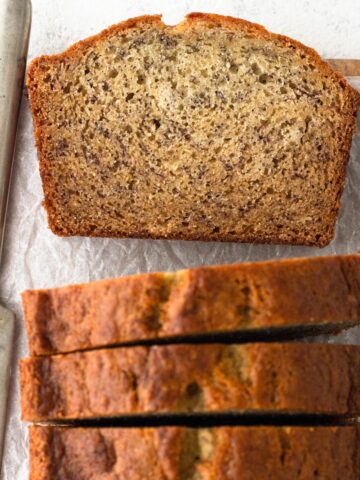
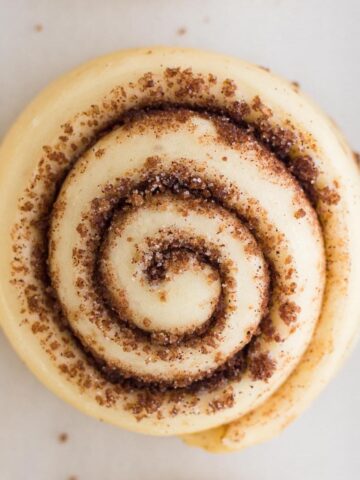
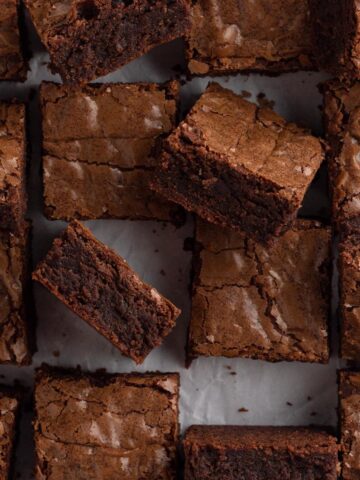
Sonya Poss
The following comment is a question I'm always dealing with because, as a kosher baker I usually make my desserts
pareve so they can be served after meat meals also...
I hate the idea of using margarine hence I tend to look for recipes using oil.
Would you be able to address how to substitute oil for butter?
I have a feeling you've never tried it and I totally understand why !!
Butter is so yummy !!
Allison
Hi Sonya! I completely understand your need for butter-free recipes because who wants to skip dessert?! I'm afraid that, as a huge lover of butter, I don't have experience substituting oil for butter in my recipes. I did a quick Google Search and was able to find several articles that detail how to tackle this substitution. However, I want to caution that substituting one fat for another (such as oil for butter) is likely to alter the results of your baking, and I wouldn't want you to be disappointed after spending your time and money to bake something delicious. My recommendation would be to search for kosher or dairy-free recipes so that they are designed to fit your needs and you won't have to worry about trial and error with substituting ingredients. I hope this helps!
xx Allison